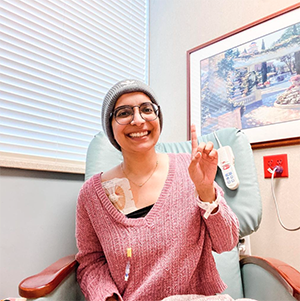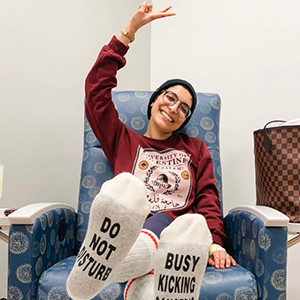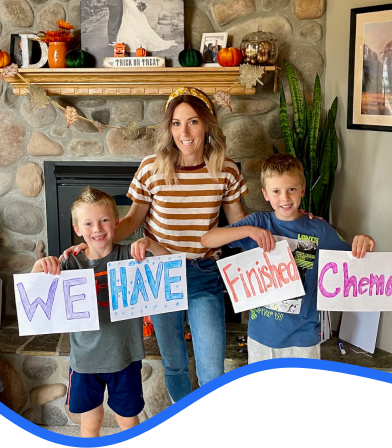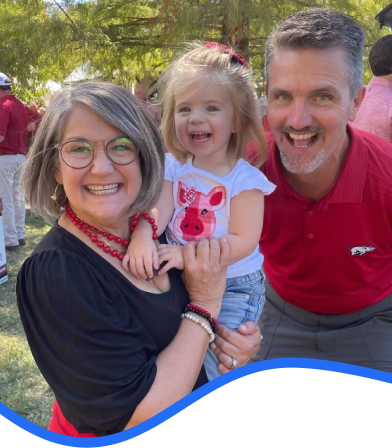
Title of the document
If I’d been tested for biomarkers earlier,
I could have skipped harsh treatments that didn’t benefit me,
and started the effective
targeted treatment much sooner.





Uroosa Khalid
Diagnosis:
Biomarker:
Diagnosis and Early Treatment
Eventually, I was misdiagnosed with duodenal cancer, and I underwent a Whipple procedure to remove tumors. That surgery revealed that I actually had metastatic stomach cancer with aggressive pancreatic involvement. Post surgery, I underwent FOLFOX chemotherapy, a grueling experience that caused me to have seizures and lose consciousness. It was unsustainable, so I spoke to my oncologist about immunotherapy, who said it was a last resort that wouldn’t help me.
Unconvinced, I sought a second opinion at MD Anderson, where my health care team tested me for biomarkers in a simple, noninvasive process involving blood draws and a saliva test. The doctors explained the results showed I was MSI-high, which meant my cancer cells had mutated and disguised themselves, which made the chemo I was on completely ineffective at treating my particular disease.

My struggles with stomach problems and gastrointestinal issues started when I was in high school...

However, they said I was a good candidate for pembrolizumab (Keytruda), and I was ecstatic to have something different and more targeted to try. My health insurer immediately denied my claim, however, and I was forced to go through a dehumanizing and scary months-long period during which I fought for coverage for the treatment my doctors knew was right for me. I could not afford the medication out of pocket, and I went without any treatment at all for several months. It was only because an advocacy organization called Hope for Stomach Cancer suggested I apply for Merck’s patient-assistance program that I ultimately received Keytruda through the manufacturer.
I was on Keytruda from March 2021 until May 2023. The side effects were minimal and my quality of life was worlds apart from when I was on chemo and could not even pick up a glass of water from my bedside table. I went back to work, and my scans were clear after six weeks. They are still clear today.
The Case for Biomarker Testing
I am truly not sure where I’d be, or if I’d even be alive today, if I hadn’t had biomarker testing and received the right treatment for my cancer.
In hindsight, I wish I had known about stomach cancer biomarkers and undergone testing earlier because the information would have steered me towards a targeted, more effective treatment sooner.
I want all newly-diagnosed stomach cancer patients to know how important it is to prioritize early biomarker testing. Asking questions about PDL-1 scores, MSI status, HER2 and other specific biomarkers should be part of their dialogue with their healthcare team. In addition, engaging with the cancer community and patient-centered organizations can be invaluable.
Five years after my diagnosis, I am working full time as a realtor and enjoying my life. Although scans, bloodwork, and endoscopies remain part of my annual routine as I vigilantly monitor my health, I’ve mostly transitioned from receiving support to trying to provide it. At times, I have survivor’s guilt because so many wonderful people I’ve met on this journey have passed away.




PDL-1 CLDN 18.2
Lauren Donithan
Lauren was diagnosed with Stage IV stomach cancer in 2023 at age 37.

HER2
Javier Flores
Javier received the grim diagnosis of Stage IV stomach cancer in 2017 at age 39.

MSI-high
Uroosa Khalid

HER2
Terri Brady

HER2
Bruce Shipman
In 2021, Bruce was in the midst of a cross-country move when he was diagnosed.


tumor
mutational
burden
Suzanne Ottinger